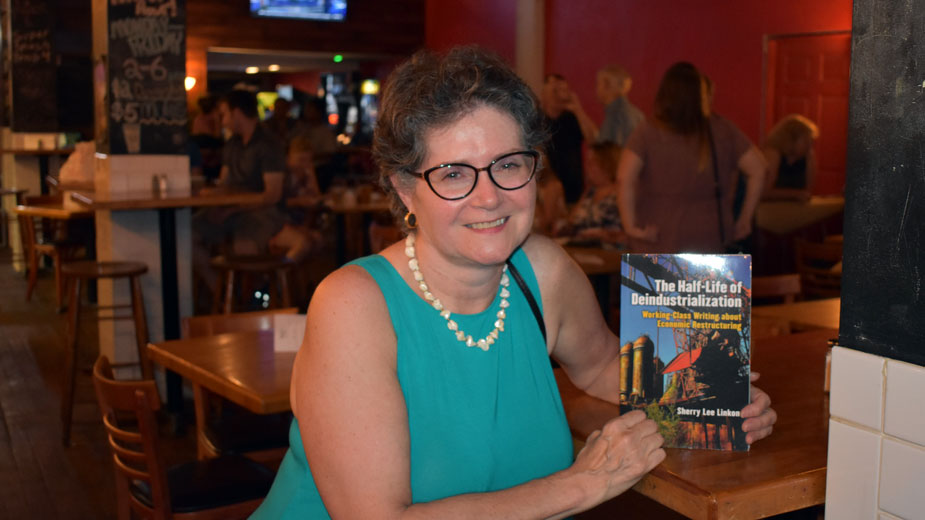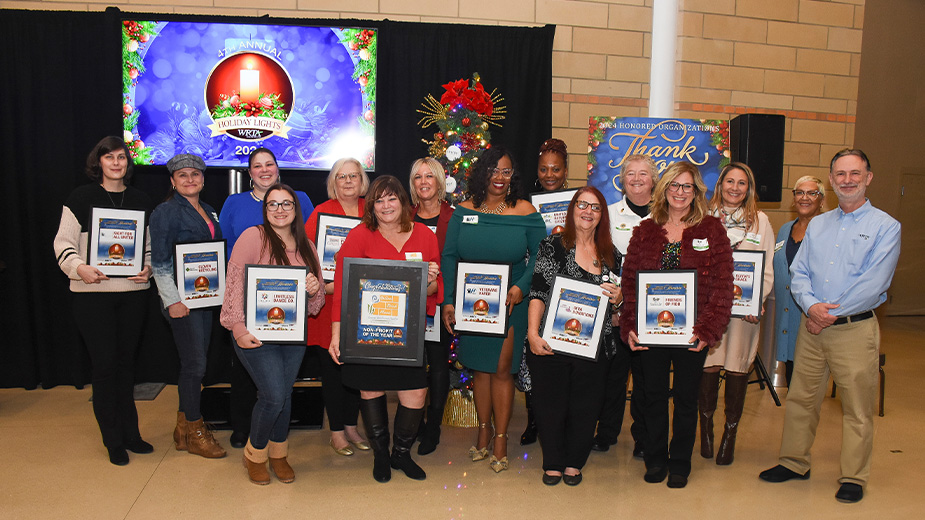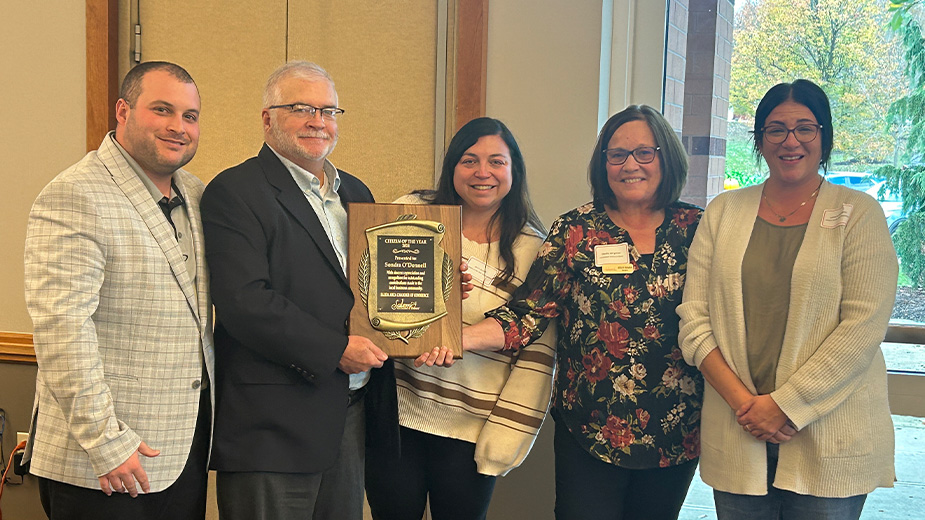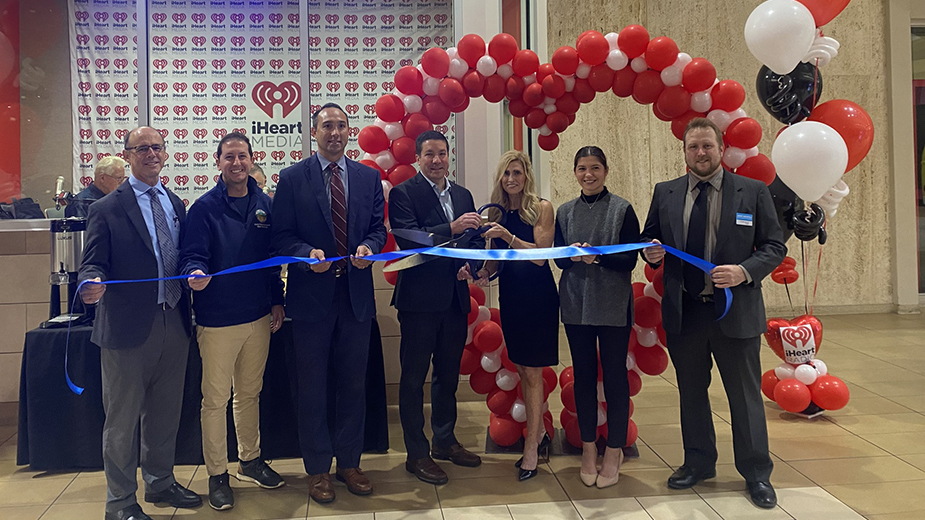Rust Belt Stories Tell Effects of Deindustrialization
YOUNGSTOWN, Ohio – Sherry Lee Linkon’s book about deindustrialization literature focuses on the Rust Belt states, but the stories aren’t unique to the region, she said, and can be found all over the world.
Linkon, English professor and faculty director of writing curriculum initiatives at Georgetown University, is a former co-director of Youngstown State University’s Center for Working Class Studies. She discussed her work and her new book, The Half-Life of Deindustrialization, during the City Club of the Mahoning Valley’s View & Brews program, “The Aftermath of Deindustrialization: Class, Culture and Conversation.”
The book, Linkon said in an interview prior to the program, looks at how contemporary American writers think about economic change. She framed it around deindustrialization and this “notion of a half-life” because of the focus on working-class writers and what has happened in working-class life. Working-class literature, she said, has been shaped by the shift from industrial labor to other kinds of work.
Studying deindustrialization literature is important because these works take the reader inside the author’s experiences in a way that research by a sociologist may not capture, “because it’s how people imagine the way the story should be or could be,” she said.
“If you look at the way we’re thinking about not only economic development but at nonprofits and organizations in general, narrative theory is a big deal right now – how we can use stories to not only drive social change but organizational change,” said Tim Francisco, YSU English professor and director of the working-class studies center. “Sherry’s doing a lot of that in this book and it’s really valuable.”
Linkon focused on communities in Ohio, Pennsylvania, Michigan and Indiana, as well as in New England, upstate New York and Baltimore ,“because I had to write about The Wire,” the HBO crime drama set there. That doesn’t mean those experiences are necessarily exclusive to those communities, she pointed out.
“I write in the book that I think you could find that kind of literature anywhere at this point all over the world,” she said. “It looks different in different places, the timing might be different in different places but the phenomenon is happening all over the place.”
The notion of the “half-life” came from her decision to focus on post-2000 writing, decades after the industrial changes began in many of the Rust Belt communities she focused on. “This is not about what people wrote during the period when the mills were shutting down. It’s really about the next generation,” she said. “This is about the long-term effects.”
Because the nature of work has changed, how people think about their identities and how they navigate what it means to be working class have changed as well. This is in part because of the gig economy as well as the tendency by many younger workers to not stay with employers long term, she acknowledged.
“There’s this whole narrative that you need to be your own brand and you need to put yourself first and that you need to take care of your work life,” rather than depending on an employer, community or union to do it, she said. A book by sociologist Jennifer Silva, Linkon added, argues that younger working-class people have come to identify themselves increasingly by individual struggles with personal challenges or traumas.
Linkon also noted shifts in terms of how people think about race and racial division have shifted, particularly if individuals have less workplace solidarity and people feel their jobs are at risk then it becomes easier for them to place blame on others for taking their jobs.
That premise, she provided as an example, forms the basis of Sweat, a play set in Reading, Pennsylvania, that documents the lives of three women – two white and one black – who began working in a steel mill there in the 1970s and how their relationships change as their jobs are threatened over the decade.
During the question-and-answer period, Linkon was asked her thoughts on J.D. Vance’s Hillbilly Elegy: A Memoir of a Family and Culture in Crisis. While she acknowledged Vance as an important voice in understanding working class life in America, his isn’t the only one in the conversation.
Among her issues with the book is it appears to be more invested than she would like in showing the poor decision people make without understanding the reasons behind the choices. In addition, the book focuses on the primarily Scottish-Irish descent of the Appalachian community in which it is set, whereas other working-class communities, such as Youngstown, have more diverse populations.
“Read Hillbilly Elegy. Don’t assume having read that you understand what working-class life in America is like,” she cautioned. “I’m sorry to say you’ve got to read a ton of tings, but no one book is going to capture it all.”
Among those in Monday night’s audience was Tim Murray, president and CEO of the Worchester [Massachusetts] Regional Chamber of Commerce. Murray and his family, en route to a meeting of chamber of commerce executives, were staying at the DoubleTree by Hilton and had come to Suzie’s Dogs & Drafts – where the City Club panel was being held – for dinner. He posed the question about Hillbilly Elegy.
Murray, who previously served as lieutenant governor of Massachusetts and mayor of Worchester, said his community had undergone industrial losses around the same period as the Mahoning Valley, but its economy was bolstered around the same time by growth in the education and biotechnology sectors.
Places like Youngstown and Worchester have a “blue-collar work ethos” and common sense when it comes to solving problems, he said.
“It’s how you harness that and leverage that,” he said. “If the literature can help form and guide that, I think it’s a successful blueprint to try to build upon those things that make communities successful.”
Karen Schubert, director of Lit Youngstown, also was impressed with the program. “The way [Linkon] thinks and presents the complexities of these kinds of issues is so relevant to our lives,” she said.
Pictured: Sherry Linkon, former co-director of the YSU Center for Working Class Studies, discussed her new book at the City Club of the Mahoning Valley’s Brews & Brews Monday night.
Copyright 2024 The Business Journal, Youngstown, Ohio.



